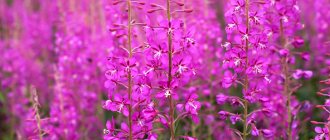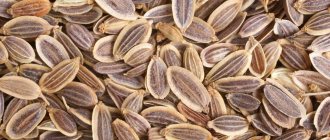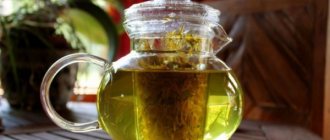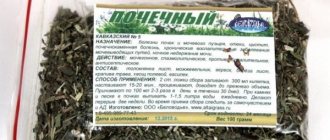Method of congestion and dosage
Place 1 tablespoon of leaf in an enamel bowl, pour in 200 ml of hot boiled water, cover with a lid and leave in a boiling water bath for 30 minutes, then carefully strain, squeeze out the excess until strained. Bring the volume of the pot with boiled water to 200 ml. For adults and children over 16 years of age, take 1 tablespoon 5-6 times a day, 40 minutes after eating. For children, prepare 1 teaspoon of leaf per 100 ml of water. For children, steep the mixture 4 times, 40 minutes after eating: 5-7 weeks - 1 teaspoon each; 7-12 days – 1 dessert spoon each;
12-16 days - 2 dessert spoons each.
Please be sure to check in before arrival.
Place 2 filter bags near the glasses or enamel dishes, pour in 200 ml of dill, close and leave for 15 minutes. For adults and children over 16 years of age, take ¼ bottle from a warm bottle
4-5 times per dose 40 minutes after going. For children, drink 3 times per meal, 40 minutes after eating: 5-7 years of age – 1 dessert spoon; 7-12 days - 1 tablespoon each; 12-16 days - 1 tablespoon
¼ bottle.
Keep cooking or infusions at a temperature of 8-15 oC for no more than 2 db.
The severity of the treatment course depends on the doctor individually.
Children.
The drug should be given to children under 5 years of age as prescribed by the doctor.
Description of the herbal preparation “Bearberry leaves”
– a medicinal plant, a decoction of the leaves of which has diuretic, anti-inflammatory and antiseptic effects.
Bearberry- The leaves of bearberry contain a set of flavonoids and some organic acids , but the main therapeutic effect is provided by arbutin glucoside.
- When it enters the human body, arbutin breaks down into glucose and hydroquinone.
- It is the last component that is responsible for the beneficial properties of this plant.
Instructions for use
Indications for use
Bearberry leaves are used in the complex treatment of diseases of the renal system and urinary tract.
| Type of disease | Disease | Action of bearberry |
| Diseases of the genitourinary system |
| Bearberry is most often used in the treatment of cystitis. It has anti-inflammatory, antibacterial, diuretic and disinfectant effects, and therefore quickly relieves unwanted symptoms. The use of bearberry for the treatment of urethritis helps to quickly achieve a positive result. Substances contained in the leaves of the plant destroy the culprits of the disease - viruses and bacteria. The result of therapy is complete restoration and disinfection of the urinary tract. In the treatment of prostatitis, bearberry acts in the same way as in the treatment of cystitis. It increases urine secretion in the kidneys, restores urination, and relieves inflammation. |
| Diseases of the renal apparatus |
| Bearberry can replace any of the diuretic drugs prescribed for the listed diseases. When using medicinal infusions and decoctions, the kidneys are quickly restored and resume their functions. For example, in case of pyelonephritis, the plant relieves inflammation by destroying pathogenic bacteria. |
| Gastrointestinal diseases |
| Due to its astringent effect, bearberry leaves stabilize intestinal function. Since they have the ability to restore the intestines and stomach, many doctors recommend taking them in the treatment of ulcers. |
| Graves' disease | The drug is successfully used for nervous disorders | |
| Sexually transmitted diseases |
| Due to its anti-inflammatory, antibacterial and cleansing properties, the plant is often used to treat diseases of the genital tract and destroy microbial infections. |
| Edema of various origins |
| In the presence of edema, bearberry is taken as a diuretic to remove excess fluid from tissues and organs. |
| Cancerous tumors | Bearberry leaves contain flavonoids and antioxidants that prevent the appearance of mutated cells and the development of cancer processes in the body. | |
| Other |
|
Mode of application
There are two ways to use bearberry leaves in medicine: as an infusion and as a decoction.
Both dosage forms are taken orally when 40 minutes have passed after a meal. Shake the infusion and decoction thoroughly before use. The prepared solution can be stored in a cool place for two days.
Depending on the clinical picture of the disease, the doctor may prescribe 45-75 ml of decoction/infusion per day to the patient. The duration of therapy varies from 20 to 25 days. If necessary, the course is repeated after 10 days, but only with the permission of the doctor. The main thing is that the courses are repeated no more than four times a year.
, place it in an enamel or glass container, pour in 200 ml of hot boiled water, cover with a lid, and place in a boiling water bath.
To prepare the decoction, take one filter bag- After half an hour, the liquid is removed from the heat and left to cool.
- Then the solution is filtered, and the remaining raw material is squeezed out.
Bearberry treatment
Official and traditional medicine primarily uses the antiseptic properties of the medicinal plant. The herb treats the urinary tract, urethra, bladder, and urolithiasis. The urinary tract is cleansed: pathogenic flora, inflammatory products are removed from the body thanks to the action of the bear's ear.
Gout is one of the diseases for which a mixture of 500 ml of boiling water and three tablespoons of plant material is used, boiled for 15 minutes. The remedy is used orally during meals twice a day, and compresses are made from the decoction for the sore spot.
Bearberry helps with swelling. You need to prepare a collection of bearberry, birch leaves, corn silk - the herbs are taken in equal quantities. Pour one hundred grams of the mixture into a glass of boiled water and place in a warm place for 24 hours. Drink half a glass an hour after meals 3 times a day.
The healing qualities of bear's ear are used to treat tuberculosis, rheumatism, atherosclerosis, and hemorrhoids. The plant will help get rid of worms or cope with insomnia and neuroses.
Bearberry for cystitis
Cystitis is a disease that can be cured with the help of bear's ear leaves. To prevent the medicinal plant from causing harm, you need to know how to take bearberry for cystitis. Preparation of the medicine consists of mixing 500 ml of water at room temperature with 2 tbsp. spoons of dry herb leaves. Next, the solution is placed in a dark, cool room for a day or night. The infusion must be filtered, taken half an hour after meals, warmed up a little first, the norm is three to five tablespoons three times a day. The infusion is stored in a cool place for two days.
Bearberry extract, which is sold at the pharmacy, will help with cystitis. Prepare a decoction of 10 grams of extract and a glass of water, take one third or half a glass three to five times a day after meals.
Collection for the treatment of cystitis
To treat cystitis, a complex of herbs is used: bear's ear (25 g), parsley (7 g), hernia (25 g), celandine herb (5 g). The mixture is stirred, placed in boiling water (300 ml), and brewed for about an hour. The herbal infusion is taken 3 times a day, a quarter glass after meals, for ten days. The kidneys are cleansed, inflammation is suppressed.
Kidney diseases
Bear's ear herb helps with kidney diseases: pyelonephritis, urolithiasis, kidney stones - when stone formation causes pathological changes in the urinary organs. Instead of tea, bearberry is brewed with hot water (one teaspoon of dried leaves per 200 grams of water). An infusion of the herb helps with pyelonephritis.
Urolithiasis is treated with a water infusion prepared from one tablespoon of dry herb leaves and 200 g of water. The mixture, infused for ten hours, is taken one tablespoon in 3-5 divided doses per day after meals. The treatment period is determined by the attending physician. Plantain, bear's ear, rose hips, birch buds, hops, currants, nettles, horsetail - a herbal mixture for the treatment of stones.
Gastrointestinal disorders
The method of preparing a medicine based on bear's ear for the treatment of digestive disorders differs from previous recipes. A teaspoon of dried leaves is poured with a small amount of water, then 200 ml of milk is added to the mixture. The infusion is heated to a boil, infused for an hour, and consumed throughout the day in small portions.
Bearberry beneficial properties
Many plants have a positive effect on health and help in the treatment of various ailments. They are usually used as an adjunct to primary therapy. Bear's ear grass also has medicinal properties. What do bearberry leaves help with?
- The plant helps with inflammation.
- Bear's ear is a diuretic.
- Bearberry is an antiseptic.
- The leaves of the plant have antimicrobial and antibacterial properties.
- The herb has antioxidant properties.
- Bear's ear has a rejuvenating, whitening, cleansing effect.
Bearberry helps with heart and joint diseases, cystitis, urethritis, prostatitis, gastrointestinal diseases, and venereal diseases. The herb bear's ears is good for the kidneys. The plant is used for ulcers, eczema, edema, tumors, insomnia, depression, and alcoholism. The leaves of the herb help the eyes: they fight conjunctivitis and blepharitis. Bear's ear fruits also have medicinal properties. With the help of berries, stomach and duodenal ulcers, cholecystitis, gastritis, jaundice, hepatitis, and helminthiasis are treated.
For women
The unique composition of bear's ear makes it possible to use parts of the plant to treat female diseases. In gynecology, the medicinal herb fights leucorrhoea and is used for improper contraction of the myometrium - when, due to hypertonicity of the uterus, uterine bleeding may occur against the background of hormonal imbalance. Leucorrhoea is treated by douching with an infusion of the plant; uterine bleeding is stopped with the help of baths made from a decoction of herbal leaves. Bearberry leaves are used for cystitis. Some sexually transmitted pathologies can be treated using a bear's ear.
The medicinal plant is included in a set of weight loss measures. It removes excess fluid, accelerates metabolic processes, and improves the functioning of the digestive system.
Two full tablespoons of dry herb are poured into a glass of hot water, the infusion is kept for a day, and drunk half an hour before meals. You can make herbal tea with bearberry. A mixture of bear's ear herbs, string, corn silk, birch leaves, taken in equal quantities, is poured with boiled water, infused for 24 hours, then filtered. Drink half a glass after meals.
Bearberry during pregnancy
During pregnancy, the use of medications that contain bear's ear herb is contraindicated. The plant can increase the tone of the uterus, thereby causing miscarriage or premature birth.
If medicinal purposes require taking a herbal remedy, a pregnant woman should definitely consult a doctor and strictly adhere to the recommended dosages.
Diuretic collection
Excess fluid is removed from the body using a diuretic mixture consisting of bear's ear leaves (2 parts) and juniper fruits (1 part). A tablespoon of the composition is poured into 250 ml of hot water, infused for 20 minutes, and filtered. To prepare a diuretic collection, you can take bear's ear leaves (3 parts), licorice roots (1 part), cornflower flowers (1 part). One tablespoon of plant material is scalded with 300 ml of boiling water and infused for about half an hour. The infusion is taken 15 ml three times a day on a full stomach.









